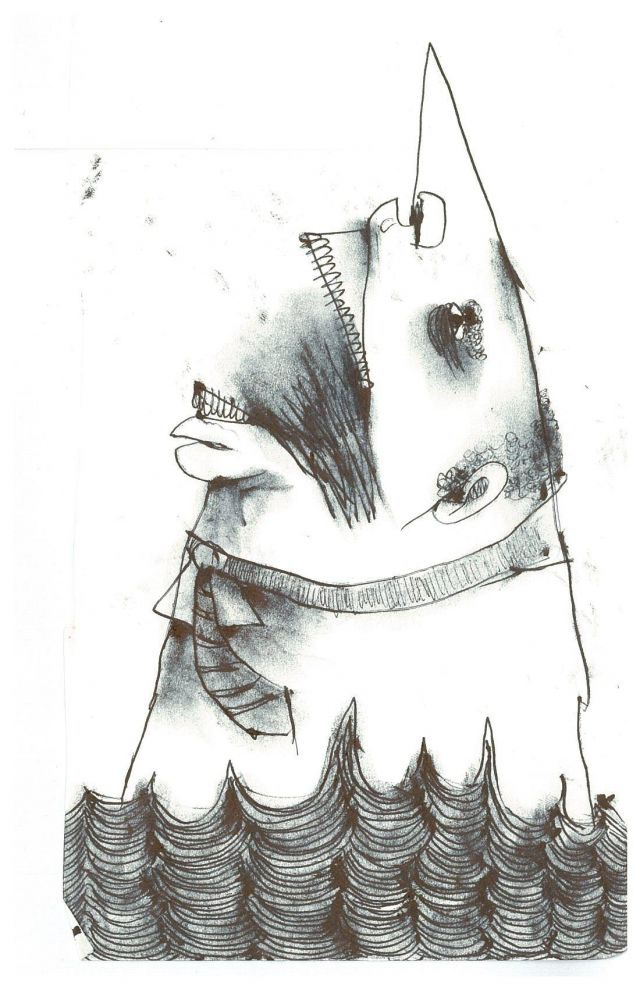The Book Business
Maddd Science

Good read here about how the razor-thin margins in the bookstore business have led to the rise of the book-lover-as-indentity trend over the past decade.
It's honestly more optimistic than my own take on what has made books so big as a marker of one's personality, which is that they're becoming eclipsed as a popular form of entertainment by VOD and social media. As books become less dominant, book nerd performitivity becomes more cool -- sort of like how being a horse person wasn't a big thing until we replaced buggies with cars. Anyway, don't listen to me: This author knows what she's talking about, so her take is the one to actually pay attention to!
How Reading Became A Lifestyle Brand
Amy Stephenson, Mel Magazine
Certainly boosting reading as a culture is a good thing, and you won’t hear any different from me. But when I consider the arc that brought us to the point where every person under 40 with a bookshelf in their home can’t leave the house without book-themed flair, it’s not all good news. The trend stems from bookstores just trying to stay alive under the crush of shrinking publisher margins and Amazon’s chokehold on brick-and-mortar businesses.
Up next: A smart, wide-ranging interview about the comic book industry. It's with Shawna Kidman, who I've talked to before for Forbes. I actually have a copy of her Comics-and-Hollywood history Comic Books Incorporated sitting on a shelf across from me right now, and haven't taken the time to read it, but I'm moving it to the top of my to-read pile after this interview.
Comic Books Incorporated: Interview with Shawna Kidman
Shawna Kidman and Henry Jenkins, Confessions Of An Aca-Fan (that's "academic/fan," not a Pitch Perfect reference)
The rise of figures like Lee and Feige, creatives who are ultimately known more for their work as executives (managing creative teams, representing the corporate brand, establishing a house tone or style), tracks pretty closely with the rise of franchise culture. As expanding story universes have replaced the old production model—isolated films and TV series—we’ve seen the story-overseers, typically producers and executives by trade, become more important than directors, whose names used to sell movies.
A fun interview digging into the photoshopper behind the Paperback Paradise twitter account. My favorite line is what draws him to the right photoshoppable cover: "I look for an emotional exchange or people fighting animals."
Hilarity Abounds at the Edge of Eternity with Dominic Moschitti’s Paperback Paradise
Sarah Fischer and Dominic Moschitti, Threadless
I enjoy using vintage paperbacks because they really had to sell you a book based on the cover, so the artists are really trying! Vintage covers usually convey the big moments or deep emotions within the book which make them fun to reinterpret.
Here's a great post with that uniquely bloggy tone that I don't think email newsletters have quite been able to capture. It's tough to describe, but I think it comes down to just the right amount of research/thought for a worthwhile blog, but not enough for anything else. Which sounds like an insult, but this post really is great and not the listicle it's pretending to be.
Top 10 Quotes for Patricia Highsmith’s Soon-To-Be-Released Diaries
Athena Bryan, MobyLives
Your faithful blogger here at MobyLives briefly considered writing a thoughtful entry on the moral and ethical issues of the posthumous publication of a famous person’s diaries.
The peg would have been Liveright’s planned 2021 publication of Patricia Highsmith’s notebooks, which total some 8,000 pages and are split between notes for her professional life and her private reflections.
I love the opening scene from the 1980 film The Mirror Crack'd, with Angela Lansberry as Miss Marple. It's basically the detective's case-cracking summary from the end of a classic mystery, where they cross out each suspect in turn before announcing the culprit. Except it's moved to the front of the story and just used to establish Marple's mad skills -- it's basically the mystery version of the action scene at the beginning of a James Bond movie. This sort of scene might be more common than I think, too -- off the top of my head, I can remember a similar opening for Kenneth Branagh's Murder on the Orient Express. This scene only strengthens my resolve to one day write a short story collection that's nothing but summation scenes for mysteries we never get to see.
I'm not sure whether to recommend We Are The Mutants' article reviewing 'The Horror at 37,000 Feet,' a 1973 TV movie about William Shatner as a defrocked priest battling evil druids on a double-decker 747, or their article reviewing The Night Stalker, the 1972 TV movie about Carl Kolchak that spawned his TV show. They're both great!
Next Time on Maddd Science: Alternate Reality
Header image: “untitled,” by Daniel Williams.
Like this issue? Maybe forward it to someone you think would like it, too. My marketing budget just covers that and my twitter account. And if someone forwarded this to you, you can subscribe here!